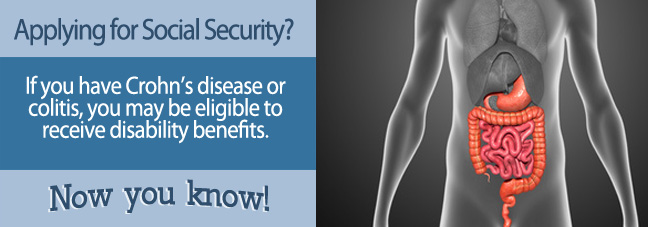December 1 marks the beginning of Crohn’s & Colitis Awareness Week. The U.S. Senate passed a resolution on November 14, 2011, to help bring about more awareness on the illness. The week of awareness brings together the IBD community in hopes of raising recognition and educating others about IBD. Most hope to someday see a day without their illness.
Living with Crohn’s & ulcerative colitis is a painstaking process. Often diagnosis is difficult and while treatment can help, patients often remain ill. To compound the difficulties, there is usually a lack of support for both patients and caregivers. Unfortunately, Crohn’s & Colitis are thought of as “invisible” illnesses, because the disease leaves patients often suffering in silence. Many feel they have no support.
Hopefully, Crohn’s & Colitis Awareness Week, which ends on the 7th, can help propel the awareness needed so that patients don’t feel isolated on their journey. There are many tireless medical professionals who are dedicated to the advancement of new and better treatments for Crohn’s patients.
Most hope to someday see a day without their illness.
If you suffer from Crohn’s or colitis, reach out to others who also have your illness so you don’t feel alone. If you know someone who suffers from Crohn’s, reach out to him or her and let him or her know you care.
Qualifying for Financial Help Through Social Security Disability
If you’re a Crohn’s or colitis sufferer, you probably already know that your condition is likely a chronic condition. While each case of IBD is different in each patient, many suffer a severe form of the disease. Symptoms such as abdominal pain, diarrhea, and fatigue can greatly impact your life. The effects of IBD can also steal vital nutrients from your body, rendering you weak and creating other health issues.

IBD symptoms can be debilitating, which can limit your ability to work. If you find that your illness prevents you from working, you may qualify for disability benefits from the Social Security Administration (SSA). This can offer tremendous help both in terms of living expenses and help to pay for some of your medical expenses.
The SSA evaluates a person seeking disability in several ways. Your illness must be severe enough to prevent you from sustaining a living through employment. The SSA will seek medical evidence to prove your case.
The SSA Listing of Impairments classifies Crohn’s disease under the “Inflammatory Bowel Disease (IBD)” section (listing 5.06). Some of the required listings for IBD in order to qualify for benefits are:
- You must have been diagnosed with Crohn’s or colitis and have documentation of at least two separate hospitalizations within a 6-month timeframe. Your hospitalizations must have occurred at least 60 days apart and must be due to a bowel obstruction that required either intestinal decompression or surgery.
OR - Two of the following must occur despite continued prescribed treatment. All with the exception of the last one (supplemental nutrition) must be documented by your doctor at least twice within a consecutive 6-month timeframe, at least 60 days apart:
- Anemia with a hemoglobin of less than 10.0 g/gl
- A serum albumin of 3.0 g/dl or less
- Documentation by your physician that you have a palpable abdominal mass with pain that is unrelieved by narcotic medication
- Perineal disease marked by a draining abscess or fistula and pain not completely controlled by narcotic medication
- Involuntary weight loss of at least 10 % of your baseline
- A need for supplemental nutrition through a feeding tube
Even if you don’t meet the above requirements, don’t lose hope. You may still qualify for disability benefits under other conditions.
You have to provide documentation that your condition is serious enough to keep you from your work and daily activities.
Applying for Benefits
You can apply for benefits one of three ways. You can call the SSA at 1-800-772-1213 or apply online. You can also visit your local Social Security Administration office to apply.
Once you apply, if you’re denied benefits, don’t give up. A lawyer can help appeal your case. Up to 70% of cases are initially denied benefits.
There can be many reasons why, from missing a question or requirement, not understanding the process or some other reason.
Don’t become discouraged if this happens to you. If you’re denied benefits, you must appeal your case within 60 days of your denial.
Consulting a lawyer is your best shot at obtaining disability benefits if your case is denied, because he or shecan give you tips on applying for benefits.
This is because an experienced disability lawyer understands how the entire process works. Disability advocates and attorneys accustomed to knowing exactly what the SSA requires and can ensure that no mistakes are made which could impede your case.
The knowledge of an experienced disability lawyer can help to improve the chances that your case is approved.
If you plan to file for disability or have already been denied benefits, consult with a disability attorney today. He or she are here to help you get the benefits you deserve.